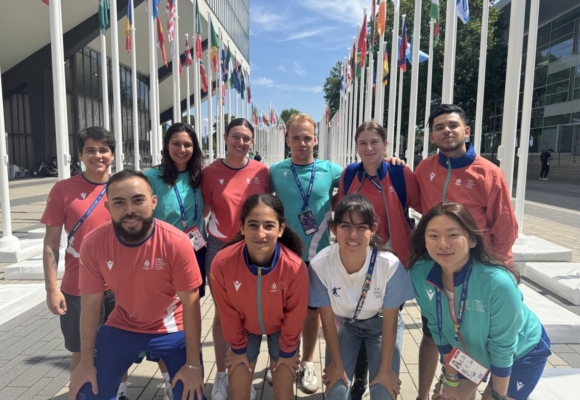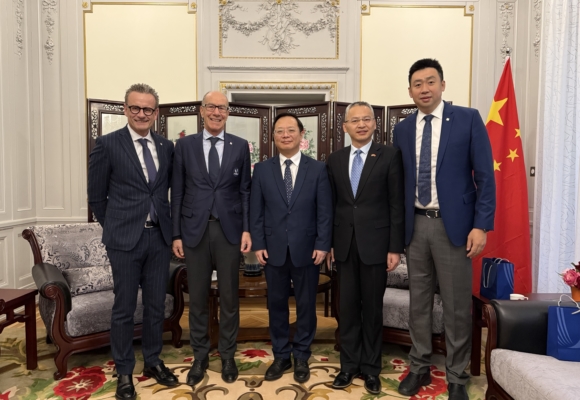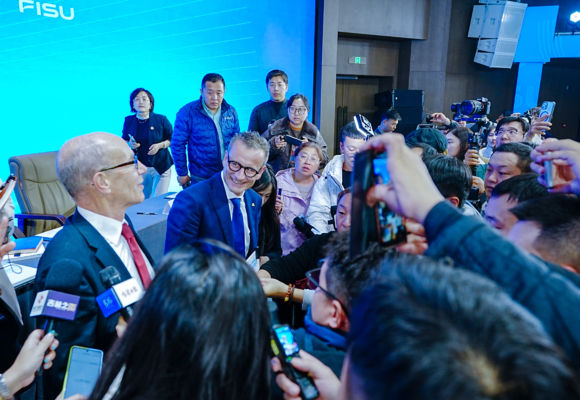Take a trip back through 60 years of Universiade history. The fifth stop on the FISU history tour takes us to Brazil – and outside Europe for the first time – for the Porto Alegre 1963 Summer Universiade
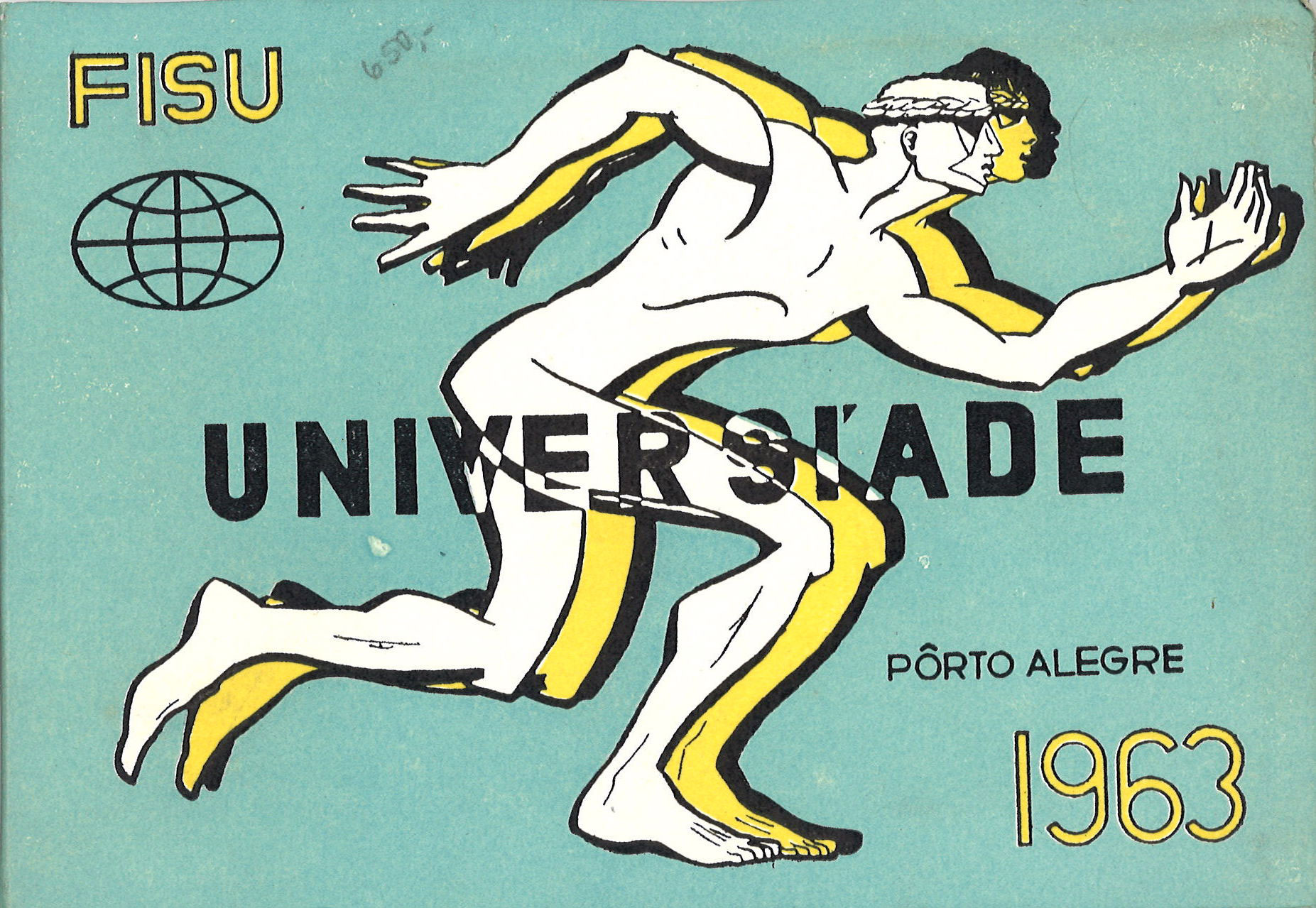
The Summer Universiade travelled outside Europe for the first time in 1963, when it was held in the Brazilian coastal city of Porto Alegre to the rhythm of the samba and the good will and nature of the hosts.
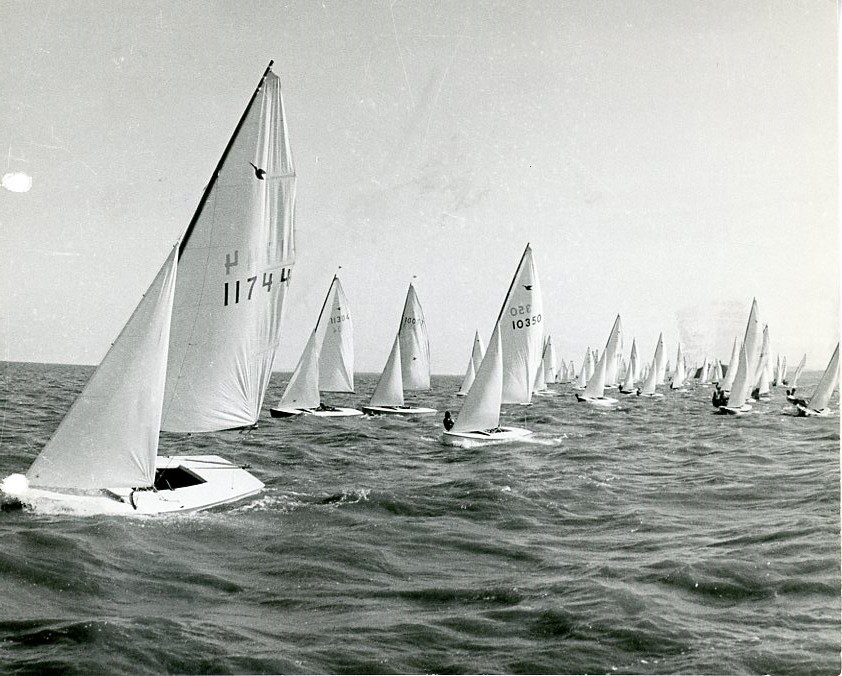 Building on the success of Turin and Sofia, the Universiade became a truly global event in its third edition, one that would help spur FISU and the university sports movement in extending their reach to all corners of the world.
Building on the success of Turin and Sofia, the Universiade became a truly global event in its third edition, one that would help spur FISU and the university sports movement in extending their reach to all corners of the world.
The Porto Alegre 1963 Summer Universiade was scaled back in terms of participants compared to the previous Games in Bulgaria two years earlier, down from 32 to 27 countries and 1,270 to 713 athletes – Norway was represented by one athlete, who also served as the country’s head delegate and chef de mission – although the number of disciplines were upheld at nine (over 70 events, a slight increase by two from Sofia).
University sport doyen Jean Petitjean was not about to miss the first Universiade to be organised in South America but with the Frenchman now at 74 years of age, he was advised by his physician to pass on the taxing journey from Europe and therefore did not attend.
Even without the father of the world university sports movement among the crowd, the Brazilians still managed to throw a party for the globe, something they know how to do well.
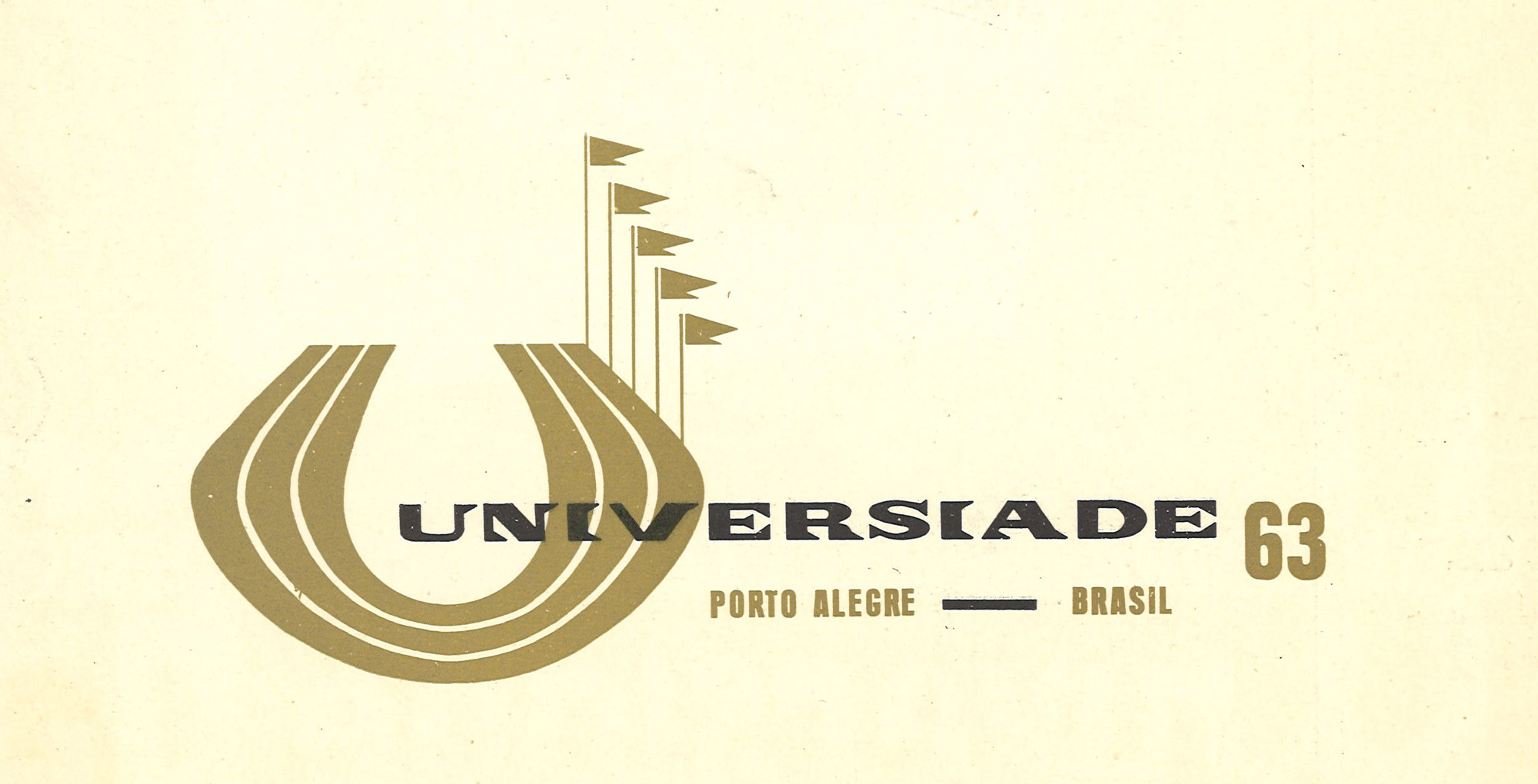 The official event logo of the Porto Alegre 1963 Summer Universiade
The official event logo of the Porto Alegre 1963 Summer Universiade
Education minister Paulo de Tarso Santos opened the Universiade, while Porto Alegre mayor Loureiro da Silva raved about the potential of what the Universiade could – and would – become. Back when Europe knew Brazil only for “Pele and coffee,” the Universiade shed the country in an entirely new light.
“It is an assembly of the student youth all over the world, meeting to fraternize in friendship and reciprocal trust,” da Silva said.
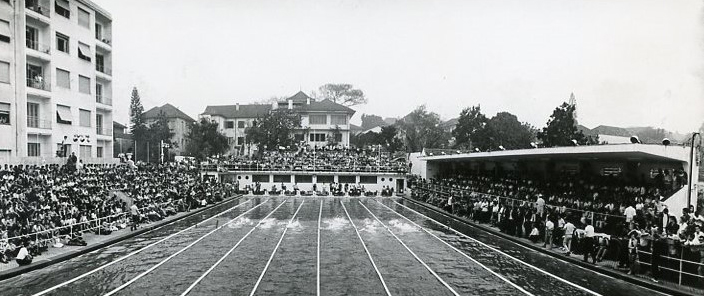 Standing room only crowds, from the swimming and diving venue to all the 70 competitions was a familiar scene during the Porto Alegre 1963 Summer Universiade. The event marked the first major multi-sport event ever in South America.
Standing room only crowds, from the swimming and diving venue to all the 70 competitions was a familiar scene during the Porto Alegre 1963 Summer Universiade. The event marked the first major multi-sport event ever in South America.
Cuban sprinter Enrique Figuerola, as well as high jumper Valery Brumel and long jumper Igor Ter-Ovanesian from the Soviet Union turned out to be the highlights of the 10-day event, which did have its organisational issues.
But lessons were learned from this Universiade as the European contingent, which still formed a majority of the FISU membership at the time, would be obliged to come up with more detailed blueprints to ensure continued success for future Games.
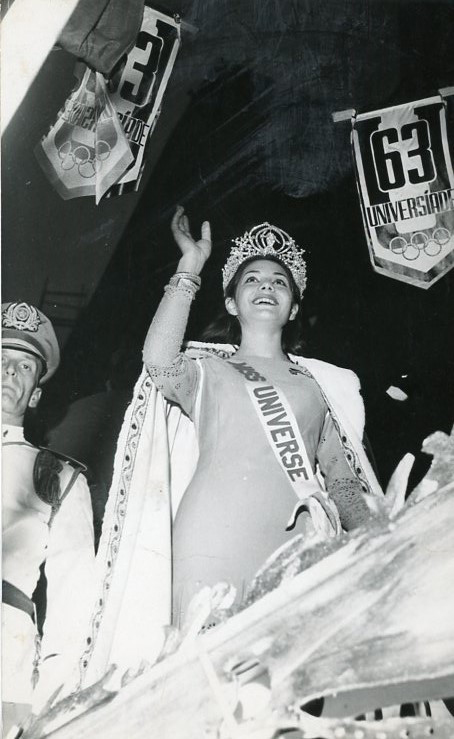 1963 Miss Universe Iêda Maria Vargas of Brazil helped usher in the 3rd Summer Universiade during the event’s opening ceremony procession and celebration
1963 Miss Universe Iêda Maria Vargas of Brazil helped usher in the 3rd Summer Universiade during the event’s opening ceremony procession and celebration
